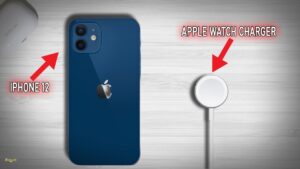How long should a laptop battery last when fully charged? It’s a question that plagues many laptop users who rely on their devices for work, entertainment, and everything in between. The good news is that there is a solution! In this article, we will explore the factors that determine the lifespan of a laptop battery and provide some tips to maximize its longevity. So, if you’ve ever wondered about the ideal battery life for your laptop, look no further! Let’s dive in and find out how to make your laptop battery last as long as possible.
How Long Should a Laptop Battery Last When Fully Charged?
Laptop battery life is a crucial factor for many users. After all, we rely on our laptops for work, entertainment, and daily tasks, so we need them to last as long as possible without needing to be plugged in. But how long should a laptop battery last when fully charged? In this article, we’ll explore this question in detail and provide you with valuable insights to help you understand and optimize your laptop’s battery life.
Understanding Laptop Battery Life
Before we delve into the specifics of how long a laptop battery should last, it’s essential to understand the factors that can influence battery life. Several variables can impact the duration of a laptop’s battery charge, including:
1. Battery Capacity: The overall capacity of the battery, measured in milliampere-hours (mAh), affects how long it can power your laptop. Higher-capacity batteries tend to last longer.
2. Hardware Configuration: The specific components in your laptop, such as the processor, graphics card, and display, can significantly impact battery life. More powerful components typically require more energy.
3. Software Usage: The applications and processes running on your laptop consume varying amounts of power. Resource-intensive tasks like gaming or video editing will drain your battery faster than simple web browsing or document writing.
4. Screen Brightness: The brightness level of your laptop’s display also affects battery consumption. Higher brightness settings consume more power.
5. Power Management Settings: The power settings on your laptop, such as screen timeout, sleep mode, and power-saving options, can significantly impact battery life.
With these factors in mind, let’s explore how long a laptop battery should typically last when fully charged.
Typical Laptop Battery Life
While laptop battery life varies greatly depending on the factors mentioned earlier, it’s helpful to understand average battery life expectations. On average, a fully charged laptop battery can last anywhere from 4 to 12 hours of continuous use. However, keep in mind that this is a general range, and specific laptops may deviate from these numbers.
The manufacturer’s specifications usually provide a rough estimate of a laptop’s battery life. These estimates are based on a standardized set of conditions and may not accurately reflect real-world usage. Therefore, it’s crucial to consider these estimates as reference points rather than absolute figures.
It’s also worth noting that battery life tends to decrease over time as the battery ages and undergoes regular use. After a certain number of charge cycles, the battery’s overall capacity diminishes, resulting in shorter battery life. However, proper care and maintenance can help mitigate this degradation.
Optimizing Laptop Battery Life
While laptop battery life is influenced by various factors, there are several steps you can take to optimize and prolong your battery’s lifespan:
1. Adjust Power Settings: Take advantage of power management settings on your laptop. Decrease the screen brightness, set shorter screen timeout periods, and enable power-saving options to conserve battery power.
2. Close Unnecessary Applications: Close any unnecessary applications and processes running in the background that consume power. This includes browser tabs, software updates, and resource-intensive programs.
3. Use Battery Saver Mode: Many laptops offer a battery saver mode that adjusts system settings to minimize power consumption. Enable this mode when you need to stretch the battery’s life, especially during critical tasks.
4. Manage Background Processes: Check your system’s task manager or activity monitor to identify resource-heavy processes running in the background. Close or limit their activity to reduce battery usage.
5. Keep Your Laptop Cool: High temperatures can negatively impact battery performance and lifespan. Ensure proper ventilation and avoid using your laptop on soft surfaces that can block airflow.
6. Optimize Wi-Fi and Bluetooth: Disable Wi-Fi and Bluetooth when not in use, as they can drain the battery even when idle.
7. Manage External Devices: USB devices, external hard drives, and other peripherals consume power. Disconnect them when not needed to maximize battery life.
Factors That Affect Battery Life
To understand the variations in laptop battery life, it’s essential to consider the different factors that can affect it. Let’s explore some key factors:
1. Battery Size and Capacity: Laptops come with batteries of various sizes and capacities. Higher-capacity batteries generally last longer, but they may also add weight to the laptop.
2. Screen Size and Resolution: Larger screens and higher resolutions require more power to operate, leading to faster battery drainage.
3. Processor and Graphics: Powerful processors and dedicated graphics cards consume more energy, shortening battery life. Choosing energy-efficient components may result in longer battery durations.
4. Storage Type: Solid-state drives (SSDs) are generally more power-efficient than traditional hard drives (HDDs), thereby helping to prolong battery life.
5. Background Processes: Certain applications or processes running in the background, such as antivirus scans or software updates, can consume significant amounts of power. Managing and limiting these processes can extend battery life.
In conclusion, the duration of a laptop battery when fully charged can vary widely depending on several factors, including battery capacity, hardware configuration, software usage, and power management settings. On average, laptops can last between 4 to 12 hours on a full charge, but specific usage patterns and laptop specifications may lead to shorter or longer durations.
By understanding the factors that influence laptop battery life and implementing battery optimization techniques like adjusting power settings, closing unnecessary applications, and managing background processes, you can maximize your laptop’s battery life and ensure it lasts as long as possible. Remember to consider factors such as battery size, screen size, processor, and storage type when evaluating a laptop’s expected battery life.
With these insights and tips, you can make informed decisions about choosing a laptop and effectively managing its battery life. Enjoy untethered productivity and entertainment without constantly worrying about finding an outlet!
Frequently Asked Questions
How long should a laptop battery last when fully charged?
A laptop battery’s lifespan can vary depending on various factors, such as the laptop model, battery capacity, usage patterns, and power settings. While it is difficult to provide an exact duration, a few general guidelines can help set expectations.
What is the average battery life of a laptop?
On average, a laptop battery can last between 2 to 4 hours when fully charged. However, this can vary significantly depending on factors like the laptop’s age, battery health, and the tasks being performed on the laptop.
How can I maximize the battery life of my laptop?
To maximize your laptop’s battery life, you can follow these tips:
- Lower the screen brightness
- Close unnecessary applications and processes
- Disable Bluetooth and Wi-Fi when not in use
- Optimize power settings
- Avoid extreme temperatures
- Consider using battery optimization software
Why is my laptop battery not lasting as long as it used to?
Over time, laptop batteries naturally degrade due to regular usage and charging cycles. This degradation can result in decreased battery life compared to when the laptop was new. Additionally, certain applications, power-hungry processes, or incorrect power settings can also contribute to reduced battery life.
Is it possible to replace a laptop battery to improve its lifespan?
Yes, it is often possible to replace a laptop battery to improve its lifespan. Laptop batteries are generally replaceable, and by getting a new battery, you can restore your laptop’s battery life back to its optimal capacity. However, it is essential to ensure compatibility with your laptop model and follow proper installation guidelines.
Final Thoughts
When fully charged, a laptop battery should ideally last for several hours, depending on various factors such as the battery capacity, usage patterns, and power settings. On average, most laptop batteries can provide anywhere from 4 to 8 hours of usage before needing to be charged again. However, it is important to note that battery life can vary significantly between different laptop models and brands. To prolong the battery life, it is recommended to optimize power settings, close unnecessary applications, and avoid excessive multitasking. Additionally, regularly calibrating the battery and keeping it at an appropriate temperature can help maintain optimal performance. In conclusion, the duration a laptop battery should last when fully charged depends on multiple factors, but most laptops can offer between 4 to 8 hours of usage.



